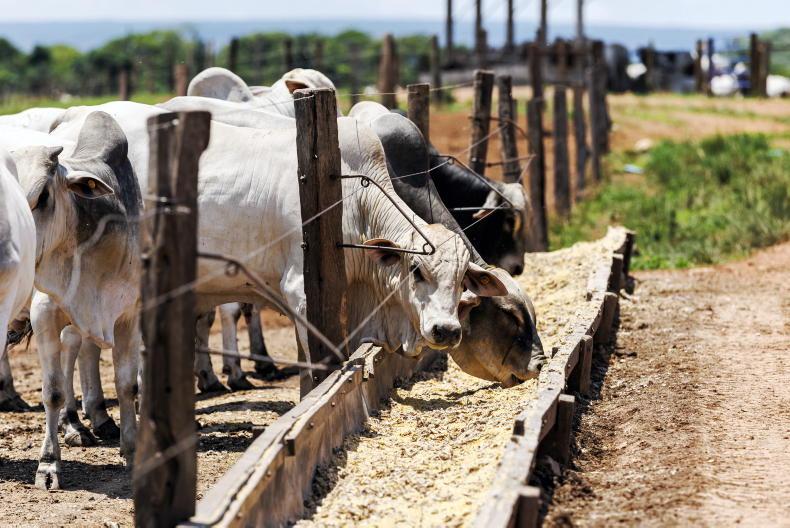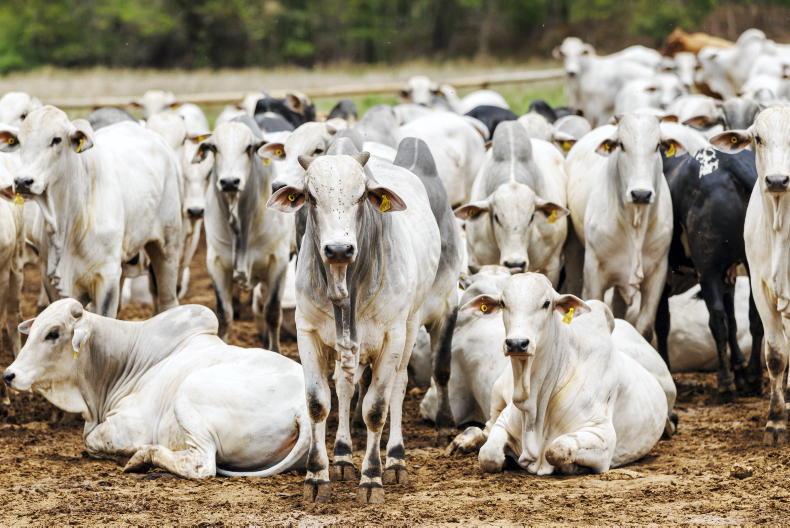The multi annual financial framework (MFF) was announced in Brussels this week and it will shape farmers' income in Ireland and across the EU for the seven years between 2020 and 2027. The focus for farmers has been how much will be allocated to agriculture or the CAP budget as it is commonly referred to.
What is the MFF?
The MFF is essentially jargon for a seven-year financial plan on what the EU will spend across all categories. The first common policy was in agriculture and the CAP has been around in various guises since 1962. At one point, it accounted for 78% of all EU expenditure but this has progressively reduced with the current period (2014 to 2020) having 38% of the EU spending dedicated to agriculture.
For the period 2020 to 2020, it is proposed that the CAP expenditure will be €365bn, with a further €10bn for research, meaning that the CAP will account for just 30% of the total budget if there is no further increase in contributions from member states. In the current MFF, agriculture receives €420bn.
Where the money goes
The total budget for the period 2020 to 2027 will be €1,279bn with the largest category of expenditure being cohesion funding which is basically money invested in the infrastructure of less developed countries to bring them closer to the EU average wealth. In the past, Ireland benefited from this fund but as we are now a net contributor the EU budget we are no longer a priority for this fund. This fund will receive €442bn in the next MFF compared with €371bn in the current period.
Security, migration and international aid have all benefited from reprioritising, unfortunately for farmers at the expense of agriculture
There has also been a refocus of expenditure in the next MFF. What can generally be described as international aid will almost double from €66bn to €123bn and the security budget will be increased from €18bn to €27bn. A new budget line has been created under the heading of migration, which has funds of €34.9bn allocated to tackle the issue of refugees arriving in the EU, usually by unsafe and illegal means.
There will be a single market and innovation fund with a budget of €123bn which replaces the growth and jobs budget in the current CAP that has a fund of €143bn.
Double whammy
There is a double whammy for CAP funding in the proposed MFF after 2020. The most obvious issue and the main explanation offered for the cuts to agriculture and cohesion funds, is the absence of the UK and annual gap of €12bn in EU finances because of that.
However, that is not all. Even with the absence of the UK some areas achieved significant increases in funds allocated. Security, migration and international aid have all benefited from reprioritising, unfortunately for farmers at the expense of agriculture.
Read more
Listen: direct hit for farmers in CAP budget
Watch: €47m/year needed to avoid future ANC cuts
‘Ireland will fight tooth and nail to protect the CAP’ – Creed
Tax plastics to plug CAP budget hole - TDs
Irish farms can expect to see no more than a modest adjustment in their payment – Hogan
Editorial: Minister must respond to weather-beaten farmers
The multi annual financial framework (MFF) was announced in Brussels this week and it will shape farmers' income in Ireland and across the EU for the seven years between 2020 and 2027. The focus for farmers has been how much will be allocated to agriculture or the CAP budget as it is commonly referred to.
What is the MFF?
The MFF is essentially jargon for a seven-year financial plan on what the EU will spend across all categories. The first common policy was in agriculture and the CAP has been around in various guises since 1962. At one point, it accounted for 78% of all EU expenditure but this has progressively reduced with the current period (2014 to 2020) having 38% of the EU spending dedicated to agriculture.
For the period 2020 to 2020, it is proposed that the CAP expenditure will be €365bn, with a further €10bn for research, meaning that the CAP will account for just 30% of the total budget if there is no further increase in contributions from member states. In the current MFF, agriculture receives €420bn.
Where the money goes
The total budget for the period 2020 to 2027 will be €1,279bn with the largest category of expenditure being cohesion funding which is basically money invested in the infrastructure of less developed countries to bring them closer to the EU average wealth. In the past, Ireland benefited from this fund but as we are now a net contributor the EU budget we are no longer a priority for this fund. This fund will receive €442bn in the next MFF compared with €371bn in the current period.
Security, migration and international aid have all benefited from reprioritising, unfortunately for farmers at the expense of agriculture
There has also been a refocus of expenditure in the next MFF. What can generally be described as international aid will almost double from €66bn to €123bn and the security budget will be increased from €18bn to €27bn. A new budget line has been created under the heading of migration, which has funds of €34.9bn allocated to tackle the issue of refugees arriving in the EU, usually by unsafe and illegal means.
There will be a single market and innovation fund with a budget of €123bn which replaces the growth and jobs budget in the current CAP that has a fund of €143bn.
Double whammy
There is a double whammy for CAP funding in the proposed MFF after 2020. The most obvious issue and the main explanation offered for the cuts to agriculture and cohesion funds, is the absence of the UK and annual gap of €12bn in EU finances because of that.
However, that is not all. Even with the absence of the UK some areas achieved significant increases in funds allocated. Security, migration and international aid have all benefited from reprioritising, unfortunately for farmers at the expense of agriculture.
Read more
Listen: direct hit for farmers in CAP budget
Watch: €47m/year needed to avoid future ANC cuts
‘Ireland will fight tooth and nail to protect the CAP’ – Creed
Tax plastics to plug CAP budget hole - TDs
Irish farms can expect to see no more than a modest adjustment in their payment – Hogan
Editorial: Minister must respond to weather-beaten farmers








SHARING OPTIONS